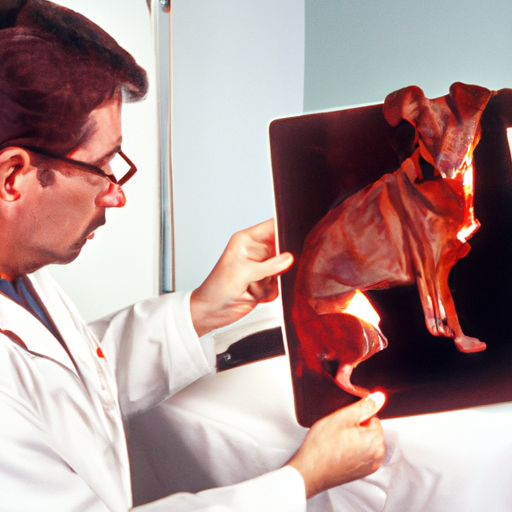As a dog owner, your pet’s health is a priority. One of the conditions that could affect your dog is pancreatitis. It’s a disease that could be life-threatening if not treated promptly, making it crucial to understand how to diagnose pancreatitis in dogs. This guide will take you through the symptoms, diagnostic process, treatment options, and tips on preventing this condition.
Table of Contents
- Understanding Pancreatitis in Dogs
- Symptoms of Pancreatitis in Dogs
- How Veterinarians Diagnose Pancreatitis
- Treatment Options and Management
- Preventing Pancreatitis in Dogs
- Frequently Asked Questions
Key Takeaways
– Pancreatitis in dogs is a serious condition that requires immediate attention.
– Early diagnosis is critical in managing and treating pancreatitis.
– Regular vet check-ups can help detect and prevent pancreatitis in dogs.
Understanding Pancreatitis in Dogs
Pancreatitis is an inflammation of the pancreas, a vital organ that produces digestive enzymes and insulin. In dogs, this condition can be acute or chronic, with the latter being more difficult to diagnose and treat. Overfeeding, high-fat diet, obesity, and certain medications are some of the common causes of pancreatitis in dogs.
Symptoms of Pancreatitis in Dogs
If your dog is suffering from pancreatitis, they may exhibit various symptoms. These include:
- Loss of appetite
- Vomiting
- Abdominal pain
- Diarrhea
- Lethargy
- Fever
It’s important to note that these symptoms can also indicate other health issues. Therefore, if you notice any of these signs, it’s crucial to seek veterinary care immediately. Here is an informative article that explores various health issues in dogs, including pancreatitis.
How Veterinarians Diagnose Pancreatitis
Veterinarians use a combination of methods to diagnose pancreatitis in dogs. These include:
- Physical Examination: The vet will check for abdominal pain, fever, and dehydration.
- Blood Tests: These are performed to check the levels of pancreatic enzymes.
- Ultrasound: This imaging technique is used to visualize the pancreas and assess its condition.
These diagnostic methods are not foolproof. For instance, blood tests may not always detect pancreatitis, especially in chronic cases. However, they provide a starting point for diagnosis and treatment.
Treatment Options and Management
The treatment for pancreatitis in dogs depends on the severity of the condition. For mild cases, dietary management and hydration therapy may suffice. In severe cases, hospitalization and intensive care may be necessary.
Here are some treatment options:
- Fluid Therapy: This stabilizes the dog’s hydration levels and electrolyte balance.
- Pain Management: Pain medication can help alleviate the discomfort associated with pancreatitis.
- Dietary Changes: A low-fat, high-fiber diet can help manage and prevent pancreatitis.
- Antibiotics: These are used when there’s a risk of infection.
Long-term management of pancreatitis involves dietary changes and regular vet check-ups. You can read more about dog diets and nutrition here.
Preventing Pancreatitis in Dogs
Preventing pancreatitis is largely about maintaining a healthy lifestyle for your dog. This includes a balanced diet, regular exercise, and routine vet check-ups. You should also avoid giving your dog fatty foods and monitor their weight. This article provides practical tips on how to keep your dog active and healthy.
Frequently Asked Questions
1. Can pancreatitis in dogs be cured?
While there’s no cure for pancreatitis, the condition can be managed and controlled with appropriate treatment and lifestyle changes.
2. Can pancreatitis in dogs be fatal?
Yes, if left untreated, pancreatitis can lead to serious complications and even death. Early diagnosis and treatment are crucial.
3. What should dogs with pancreatitis eat?
Dogs with pancreatitis should eat a low-fat, high-fiber diet. It’s also advisable to feed them smaller, more frequent meals.
In conclusion, understanding how to diagnose pancreatitis in dogs is crucial for every dog owner. Regular vet visits, a healthy diet, and prompt treatment can help manage this condition and ensure your furry friend lives a long, healthy life. For more information about common dog health issues, check out this guide from PetMD.



